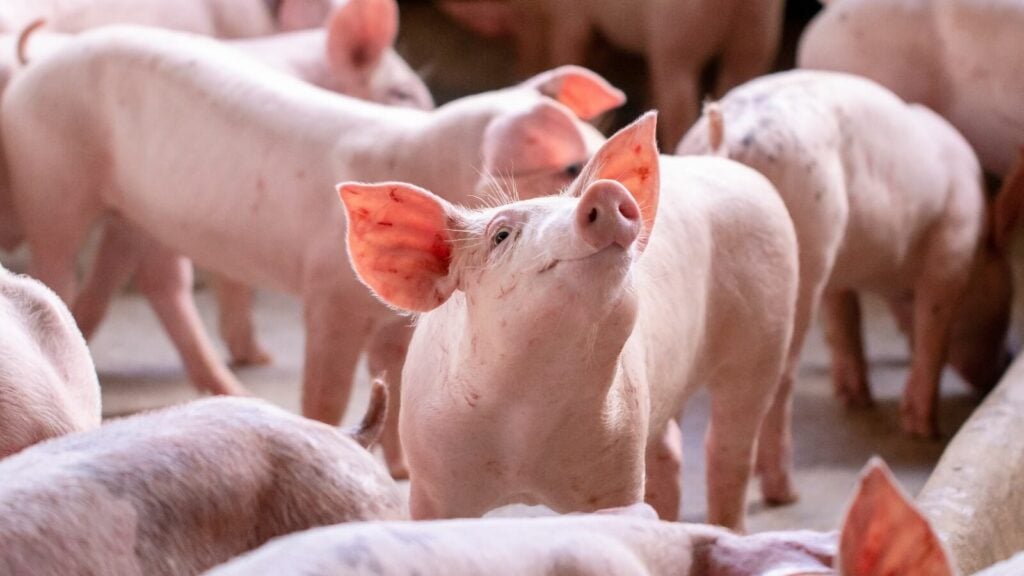The slaughterhouses have crumbled, lab cages are empty. There are only sanctuaries not zoos, shelters not breeders, plant ‘leather’ not animal skins… Vast swathes of agricultural land have been rewilded, the seas are repopulating, the air is alive with insects again…
The possibility of a vegan world is something everyone reading this article has probably dreamt of. Sometimes it feels like a distant, even delusional fantasy; other times, the possibility of it feels more palpable. We can envisage what a vegan world might look like. But what’s harder to imagine is how we make it a reality.
This is the question that inspired the creation of Animal Think Tank back in 2018. It prompted us to look at animal freedom in new and strategic ways. Specifically, through the lens of social movement theory.
Do we need a social movement for animal freedom?
The purpose of mass social movements is to organize and empower people to bring about cultural and political change by strategically campaigning for the rights and liberties of oppressed groups.
But does the animal freedom movement need its own mass movement? Aren’t we making enough progress through our current tactics? By encouraging individuals to go vegan and ensuring plant-based eating is more desirable and convenient. And by alleviating as much animal suffering as possible through welfare reforms.
Yes, we’re making progress. But is there a quicker shortcut to reach a vegan world?
Perhaps we need to look to the past in order to shape the future. Because history shows us that morally forceful and disruptive social movements are a key driver of cultural and political change. Yet mass civil disobedience has rarely been implemented in the animal freedom movement.
Black Lives Matter and Extinction Rebellion
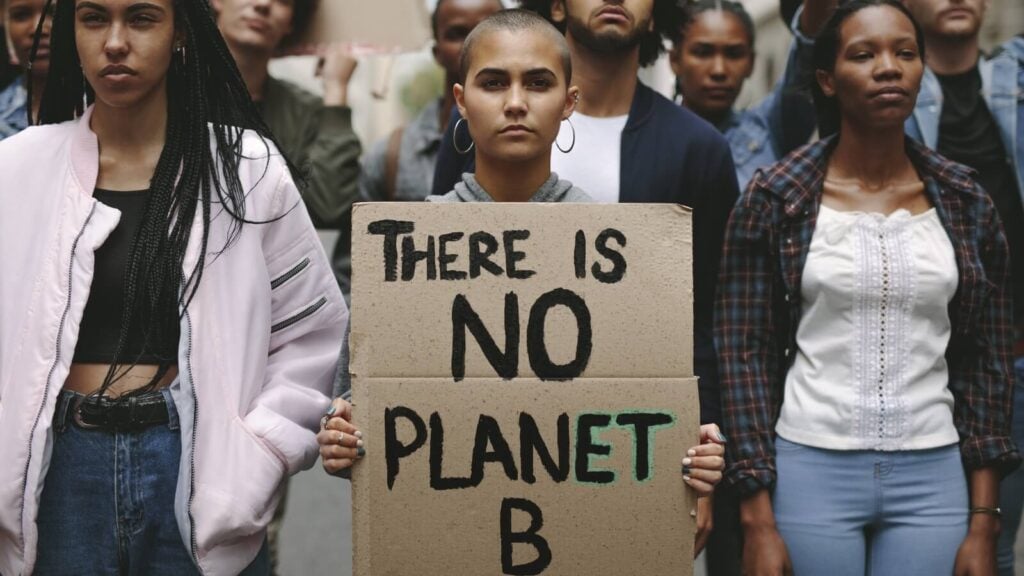
When we think of recent examples of social justice movements, like Black Lives Matter and Extinction Rebellion, they have one major commonality: they cause economic, political and social disruption. They halt business as usual, all the while challenging society’s commonly held beliefs. They create and surface conflict that pushes the urgency of the issue into the public consciousness.
George Floyd’s murder caused a swell of mass protests that saw millions of people take to the streets in 2020. But these were the result of a smaller, strategically organised movement that began years earlier in 2014, and was informed by the learnings from other movements.
Likewise, the founders of Extinction Rebellion (having witnessed how even the most well-funded, respected environmental groups had failed to generate anything beyond superficial government and industry measures) understood that mass civil disobedience was necessary to bring about the drastic cultural and institutional change needed. It was only by reframing a message that had been ignored for decades that the climate crisis actually became a crisis.
The impact of mass nonviolent protests

The BLM protests have had a huge impact on society’s (slow) progression towards racial justice. They, among other things, prompted numerous state and local police reforms. Meanwhile, Extinction Rebellion not only transformed public perception about the climate emergency, it also provoked the government – and hundreds of local councils – to declare a climate emergency and convene a national citizen’s assembly.
What BLM and XR achieved in a short space of time is unprecedented. Yet there’s every reason to expect that utilising civil disobedience in our own movement would result in similar leaps forward for animal freedom.
People power
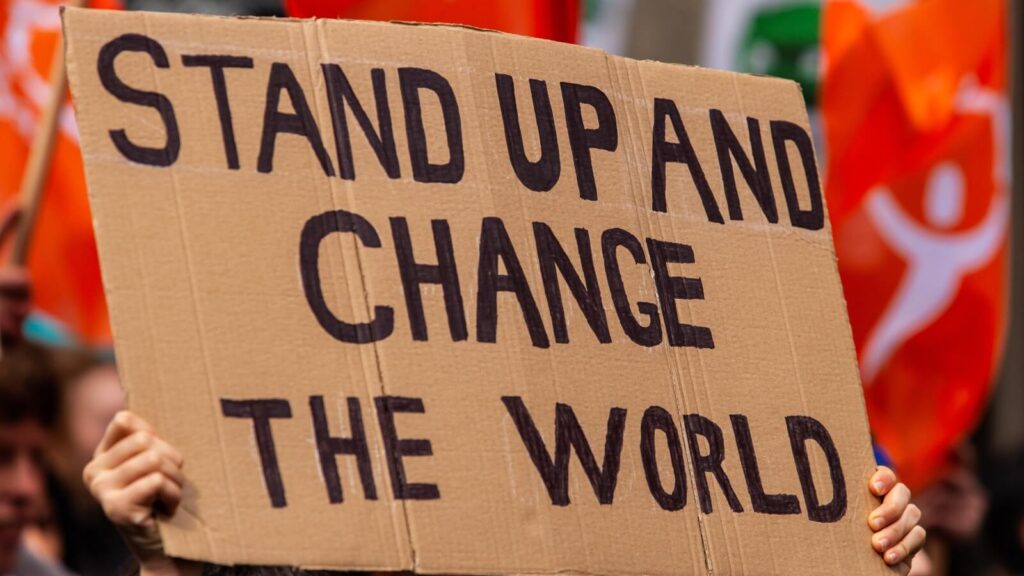
While we often view institutions as the power-holders in society, their power only comes from the approval and legitimacy the public grants them. In other words, people hold the power, not institutions. And this is why protesting – specifically organised mass civil disobedience – is the most effective way to directly pressure decision-makers. By provoking a crisis they can no longer ignore.
The importance of people power cannot be overstated. Nonviolent social movements have succeeded in everything from legislation reforms to bringing down entire regimes. One of the biggest misconceptions about mass disruption is that we need huge levels of support to achieve our goals.
The BLM protests saw millions of people taking part. Contrastingly, XR changed the narrative around the climate crisis and forced political action with around only 20,000 people. And yes, in both cases, the struggle is far from over. But these movements have paved the way to keep on pushing for more radical change.
A vision of the future
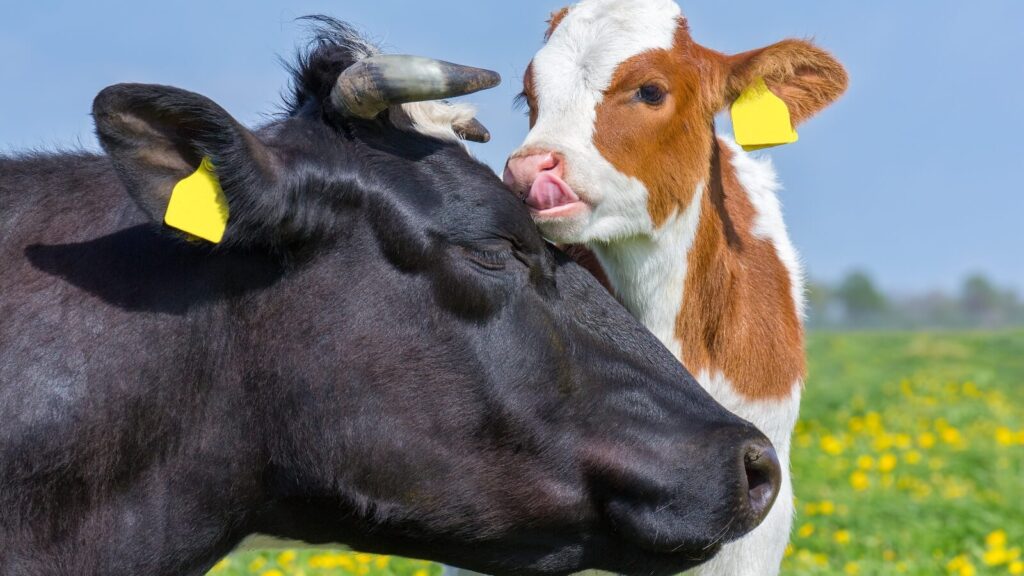
Social movements challenge power structures and educate the public about the issue. But they also provide viable alternatives to the status quo, laying the foundations for a better world.
For a vegan world to seem possible, we must present the vision of a future that benefits both humans and other animals. People are more likely to engage with our cause if we spend less time on why animal exploitation is a problem, and more time on the benefits of solving it.
This is about activating society’s core values. And making them see that animal freedom is not just a moral imperative, but that it’s desirable, too. In this way, a vision can become a self-fulfilling prophecy. Without an appealing alternative to the status quo, we cannot expect public support for a directionless cause that offers no solution, only problems, no matter how morally urgent they are.
The importance of shared values

Many animal advocates feel that our movement has more hurdles to overcome. This is because we are an ally movement that acts on behalf of, and in solidarity with, another species. In contrast, a human rights movement can more directly connect with human self-interest. But it’s important to remember that the UK, like many countries, considers itself a nation of animal lovers.
Most Brits detest animal cruelty, many are opposed to factory farming (hence the reason why the industry hides behind terms like ‘free-range’, ‘high welfare’ and even ‘happy’), a surprising number of meat-eaters support the closure of slaughterhouses (even if they don’t recognise their own cognitive dissonance), and in 2019, animal charities received 26 percent of all donations (more than any other cause).
We don’t need to win people over to the idea of animal freedom. We just need to connect with the values they already hold. And, importantly, show them the opportunity to live by those values.
Controversy

Whether it’s police brutality, the climate crisis, or animal freedom, the biggest guarantee for moral issues to capture media headlines and attention in the public sphere is mass civil disobedience. And in a world of information overload, it’s often the actions that seem most controversial that engage the public the most. It may sound like a paradox, but conflict and controversy are necessary in nonviolent mass protests.
We’re not just courting controversy through our actions – we must create it if we are to gain enough attention and seize the cultural narrative around animal freedom. After all, protest is, in essence, dramatic storytelling, and drama isn’t drama without (strategic) conflict and controversy. We know how high the stakes are: the suffering and killing of trillions of animals each year, not to mention the precarious future of all life on this planet. So, we need to raise the stakes to make the rest of society take notice. We know that what is happening to animals is an emergency. But if we are to convince the public that it is an emergency, we need to start acting like it’s one.
One of the key facets of controversy is that it’s polarising. Yet this can be a good thing. Forcing people to take sides on a moral issue, rather than sit on the fence, in turn forces a shift in the status quo.
The reality of animal exploitation is hidden from public view. It’s our job to centre it through disruptive protest and provoking public debate. And ultimately, forcing people to decide which side they’re on – animal freedom or animal oppression.
Challenges

The most impactful social movements throughout history were the result of meticulous research and planning. For instance, Gandhi spent years developing the strategies, narratives, organisation, and culture necessary to build a broad-based movement to achieve Indian Independence.
Building a mass social movement that is strong enough and resilient enough to endure is a lot of work. No matter how much you prepare, organise, and strategise, all movements face backlash and resistance. But this is not only inevitable (and an indicator that your demands are far-reaching enough), it’s a key part of the change process, which further fuels the movement.
The challenges the animal freedom movement faces are the same challenges faced by all social justice movements: we don’t have the capital of our opponents, or the political ties, or the hierarchical power. Yet the history of social movements already holds the key to overcoming these challenges. Our most powerful force is people and their intelligence, defiance and determination to bring about the change that animals, human animals and our planet so desperately need.
Mass civil resistance is not the only missing piece of the jigsaw in the animal freedom movement, but it’s a big one, and one that has been absent from the movement for too long.
Ecology of the movement

At some point, the system of animal oppression will end. And it won’t happen because of one individual, one organisation, or even one social movement. It will happen because of the combined efforts of all of us – activists, NGOs, educators, lobbyists, entrepreneurs, artists, sanctuaries, chefs, and even our unlikely allies.
Different organisations are needed to challenge and transform the issue from different angles; it’s not about one strategy but multiple strategies working together and feeding into each other. And the most powerful movements throughout history recognised this. They developed solid coordination between their efforts, which tended to the health of the whole movement.
Central to a healthy ecology is diversity – we need a vibrant, varied movement that not only reflects the diversity of vegans but reflects the full spectrum of society. People can only connect to a movement or an organisation if they can in some way identify with its members. (This is just one of the reasons why Animal Think Tank wants to ensure its team is as diverse and representative as possible.)
Just like it takes a whole village to raise a child, it takes an entire movement, in all its multifaceted, beautiful complexity, to bring about lasting transformation. This is why, alongside Animal Think Tank’s approach of building a mass social movement, is our continued support of the wider animal freedom movement. We assist with its strategic direction, capacity and innovation, as well as build alliances across groups and other movements, and seed any needed organisations. For example, we launched Animal Rebellion in 2019 as an ally movement to XR, to ensure the animal emergency became a part of the wider narrative of the climate emergency.
‘Ambitious, but not delusional’
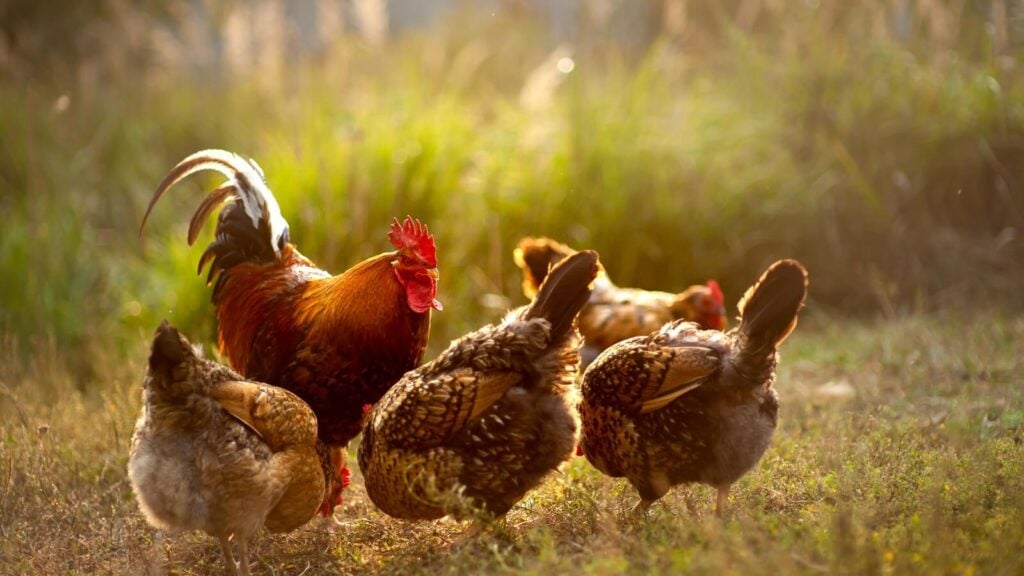
Since launching in 2018, we’ve trained hundreds of change-makers through Movement Building workshops in the UK, US, and Canada. Further, we will soon be offering in-depth training in other areas, such as: Strategy; Narrative Framing; Organising Structures; Culture; Nonviolence; and Leadership Development.
At Animal Think Tank, we believe the current climate is ripe for a disruptive mass movement for animal freedom. But we also know that a movement of this scale needs careful planning and strategic thinking. That’s why we’re actively looking for creative, open-minded and motivated people from all walks of life to expand our diverse team. If you think that could be you, we want to hear from you.
Yes, our mission is bold and ambitious, but it’s not delusional. We only have to look at history to know that it’s the controversial, seemingly ‘delusional’ movements that have brought about transformative cultural change. All of us joined Animal Think Tank because we believe that a world where animals’ rights to life, liberty and security of person are protected in law and respected by society is achievable. We certainly don’t have all the answers for how best to get there. But we think we’re asking a lot of the right questions.
A vegan world is possible – but only if we think it is. We have to be strategic, visionary, and audacious in communicating to the rest of the world a future that benefits all animals – human and nonhuman. Because if we’ve learnt anything from history, it’s that playing it safe poses more of a threat to animal freedom than taking risks does.
